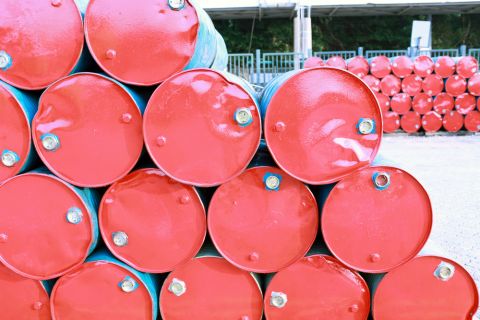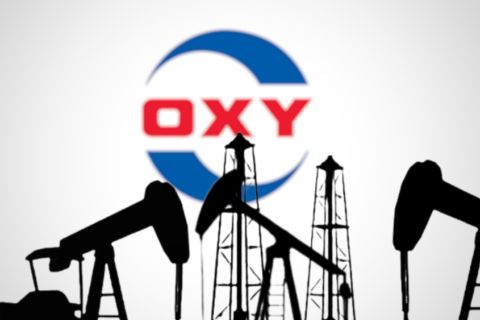Five years ago, what was once Europe's leading oil and gas producer was in deep disarray. With alarming outlooks on levels of extraction and rig counts and a globally depressed oil and gas industry, the U.K. sector was looking at its future with an eye on retirement schemes. Half a decade later, the outlook seems radically changed, with the sector buzzing with news of fresh deals and renewed activity and oil and gas industrialists adopting a much more optimistic stance, both at home and abroad. Oil was first discovered in the U.K. in the early 1910s onshore. In 1919, the first oil was produced from the Hardstoft Field, in the East Midlands. Today, 45 onshore fields are producing 32 million barrels of oil per year and around 23 billion cubic feet (Bcf) of gas. Despite more than 80 years of activity, significant discoveries are still being made, the coalbed-methane industry is still in its infancy and there is much room for innovative thinking in the basin to expand the onshore production life-cycle. Yet, the U.K.'s real potential, and base for its oil-producing status, comes from its offshore hydrocarbon reserves, out of which 31 billion barrels have been extracted, with an estimated 24- to 32 billion barrels of extractable reserves remaining. Going offshore In 1959 the massive Groningen onshore gas field was discovered in the Netherlands. Geologists estimated that the same rock formations might be found beneath the southern North Sea basin in U.K. waters. They were right, and gas was discovered off the U.K.'s East Coast in the 1960s. Clues discovered around the coast of Greenland gave geologists the idea that there may be oil and gas around Scottish waters. There had been onshore oil wells in Europe since the 1920s, but it wasn't until the 1960s that exploration in the North Sea really begun, without encountering much success in the early years. The first commercial oil was finally struck in 1969 in Amoco's Arbroath Field and discoveries succeeded one another from then on. The first oil shock accelerated U.K. offshore development and efforts to put hydrocarbons onstream. In 1975, Hamilton's Argyll oil field started production, bringing the first U.K. offshore oil to market in June that year. By 1978 U.K. North Sea production topped 1 million barrels of oil per day for the first time. The first major discovery of gas, now in production at the West Sole Field, was in 1965. Following these early stages, a major offshore exploration campaign opened the North Sea backed by the resource base for the industry in the U.K. and Norway. By 1991, 100 fields were in production in the U.K., with majors like BP and Shell leading the way, building their offshore know-how and facing the challenging task of operating assets from offshore infrastructures in some of the harshest maritime conditions possible. With gusts of up to 120 miles per hour, cold waters and building-size waves, the challenge of realizing such successful operations out of such an unforgiving basin cannot be considered an easy one. It was excellently tackled nevertheless, and for more than 30 years, the North Sea was the bread and butter of a national industry that was built up benchmarking itself against the most stringent of environments. A buoyant service industry sprung in the wake of this oil boom and developed as an internationally active and recognized subsector. Yet, with 30 billion barrels extracted and now considered a mature province, the frontier is no longer hidden in the harsh seas of the North Sea or indeed onshore U.K. With most of the majors concentrated on hunting elephants off the coasts of West Africa, in the Caspian Sea or onshore Russia, the U.K. fell into decay, with levels of exploration falling and the country looking nostalgically as its oil-producing status slipped. A large discovery A steep rise in oil prices, however, at the end of the 1990s, doubled with a forward-thinking government policy, resulted in the outlook suddenly looking less bleak. New exploration campaigns went under way and new players entered the fray. In June 2001, Canadian independent EnCana sent the signal that the industry had been seeking during the past decade: the Buzzard discovery, estimated at more than 400 million recoverable barrels, proved that there was still major potential held on the U.K. Continental Shelf (UKCS) and that the life expectancy of the basin could, beyond any doubt, be further extended. That find, which is currently in development, will be in production in late 2006, with peak output of 180,000 to 190,000 barrels per day expected in 2007. The discovery triggered a wave of extra interest and pushed the U.K. Department of Trade and Industry into an even more aggressive promotion of the opportunities to be found in the U.K., both offshore and onshore. The 21st offshore licensing round held alongside the 11th onshore round, which was open to applications from February to May 2003, witnessed a record number of new entrants willing to grab exploration licenses from all across the basin and the complete range of asset profiles. Sixty-two E&P companies, from veterans to minnows and total newcomers, successfully participated, winning licenses in what became the most successful licensing round in the U.K. oil and gas industry's history. The wave of optimism triggered by these rounds and the great level of new interest cannot be measured. It holds a great number of promises for the local support industries, which were looking at declining production rates with some trepidation, and has signaled the beginning of a new era for the U.K.'s oil and gas industry. With many more entrepreneurial, fast-moving and lateral-thinking organizations coming to the fore, the problem of decline has taken on a whole new dimension and the U.K. can look ahead with confidence. The next 10 years will be innovative and productive, and the U.K. will surely remain a considerable oil and gas producer. It is now time to assess if the efforts put together by the existing players, the newcomers and their supporting partners from the financial sector, the service industry and the public authorities will be good enough to slow the decline and meet the U.K.'s rising gas consumption as well as its oil-export commitments with its ailing production. The future of Britain's security of supply and its status as a producing nation is at stake. A large part of the country's industrial and technological development achieved in the wake of the oil and gas boom also needs to rethink its positioning. This report is addressing these issues at a crucial time in the basin's history, both offshore and onshore. Gilles Valentin, oil and gas reporter, Global Business Reports (gilles@gbreports.com); Carsten Gueber, financial reporter,.
Recommended Reading
Kissler: OPEC+ Likely to Buoy Crude Prices—At Least Somewhat
2024-03-18 - By keeping its voluntary production cuts, OPEC+ is sending a clear signal that oil prices need to be sustainable for both producers and consumers.
Range Resources Holds Production Steady in 1Q 2024
2024-04-24 - NGLs are providing a boost for Range Resources as the company waits for natural gas demand to rebound.
Buffett: ‘No Interest’ in Occidental Takeover, Praises 'Hallelujah!' Shale
2024-02-27 - Berkshire Hathaway’s Warren Buffett added that the U.S. electric power situation is “ominous.”
Enbridge Advances Expansion of Permian’s Gray Oak Pipeline
2024-02-13 - In its fourth-quarter earnings call, Enbridge also said the Mainline pipeline system tolling agreement is awaiting regulatory approval from a Canadian regulatory agency.
Keeping it Simple: Antero Stays on Profitable Course in 1Q
2024-04-26 - Bucking trend, Antero Resources posted a slight increase in natural gas production as other companies curtailed production.





